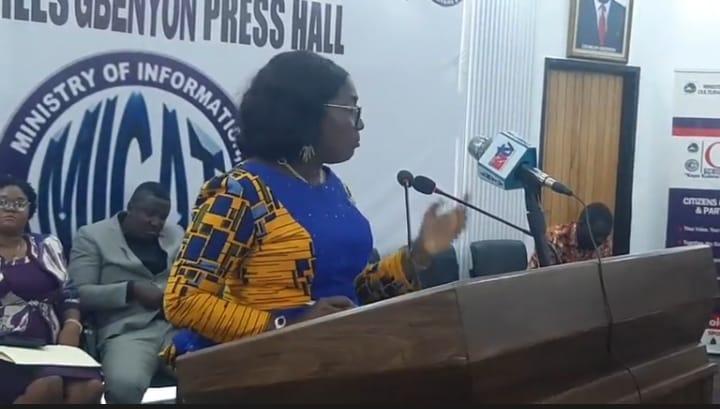Africa-Press – Liberia. The Managing Director of the National Housing Authority (NHA), Madame Florence Kateka Gergboe, has raised alarm over Liberia’s increasing overcrowding and the rapid expansion of slum communities in Monrovia.
By Kruah Thompson
Monrovia, October 8, 2025: Describing the situation as a national emergency, Madame Gergboe said it demands urgent government intervention and direct investment in housing.
She attributed the crisis to Liberia’s growing population, revealing that 70 percent of the population currently lives in slums under devastating housing conditions.
According to the NHA boss, addressing the issue will require 200,000 new dwelling units to reduce existing overcrowding, 163,035 units to meet population growth, and 4,891 units annually to replace old and damaged housing at a rate of 3 percent per year.
In total, 512,000 urban dwellings will be needed by 2030, she said, quoting estimates from the United Nations Human Settlements Programme (UN-Habitat).
Speaking Tuesday at the Ministry of Information’s regular press briefing, Madame Gergboe emphasized that without significant investment and policy action, Liberia risks further deterioration of urban living conditions, particularly in its capital.
She said that poverty, limited funding, and the absence of comprehensive housing policies have made decent homes unaffordable for most Liberians.
She warned that urban areas, especially Monrovia and Ganta, are facing severe overcrowding and a growing slum population.
“Finance and poverty have made decent housing unattainable for most of our citizens. Urban areas are overcrowded, funding is scarce, and there are no comprehensive housing development policies to improve the situation,” Geegboe said.
According to the NHA boss, a 2020 World Bank report indicates that about 70 percent of Liberia’s population lives in slum communities under “devastating conditions.” Meanwhile, a 2014 UN-Habitat survey projects that Liberia will need at least 500,000 new urban dwellings by 2030 to reduce overcrowding, meet population growth, and replace deteriorated housing units.
“We need 200,000 new homes to reduce crowding, 163,000 to keep pace with population growth, and another 140,000 to replace old and damaged structures,” she explained.
Madam Geegboe lamented that Liberia lacks mortgage and housing finance institutions, as well as a national land bank for public housing development, factors she said are stalling progress.
“Our land bank is completely depleted. Without public land, mortgage banks, or refinancing institutions, the NHA’s ability to develop new housing projects is severely limited,” she noted.
Despite these challenges, the NHA has developed several proposals to boost affordable housing, including a Civil Servants Housing Project under the ARREST Agenda for Inclusive Development (2026–2029), valued at US$16.8 million. A draft National Housing Trust Fund Act (2025) to serve as a financial guarantee for developers and ensure that civil servants can own homes upon retirement.
Additionally, an amendment to the 1960 NHA Act will grant the agency regulatory powers to license builders and enforce construction standards.
“The National Housing Trust Fund has worked in more than 16 countries. It gives developers confidence that their investments will be protected, while ensuring affordability for Liberian workers,” she said.
She confirmed that both draft acts have been sent to the Law Reform Commission for verification before submission to the Cabinet and the National Legislature.
The NHA is also pursuing public-private partnerships and has signed several memoranda of understanding with foreign investors interested in Liberia’s housing market.
Additionally, a National Housing and Agriculture Bank is being established to handle mortgage and refinancing operations, with a preliminary license already secured.
Madam Geegboe disclosed that she recently met with Ghana’s Ministry of Works and Housing to share best practices and plans to host a similar engagement with Sierra Leone’s Housing Ministry soon.
“The government must play its part by providing land, access roads, and utilities. When the state fulfills these obligations, partners will come in to build. Housing is not just about shelter, it’s about national stability and human dignity,” she stressed.
She added, “The government cannot do it alone. We need partners, but the government must provide land, infrastructure, and utilities to invest housing viable.”
Madam Geegboe concluded by emphasizing the need for more substantial government commitment and public awareness to address the housing deficit.
“The government has a role to play, and so does the public. If we work together with sound policies, funding, and partnerships, we can transform Liberia’s housing landscape,” she noted.
For More News And Analysis About Liberia Follow Africa-Press






